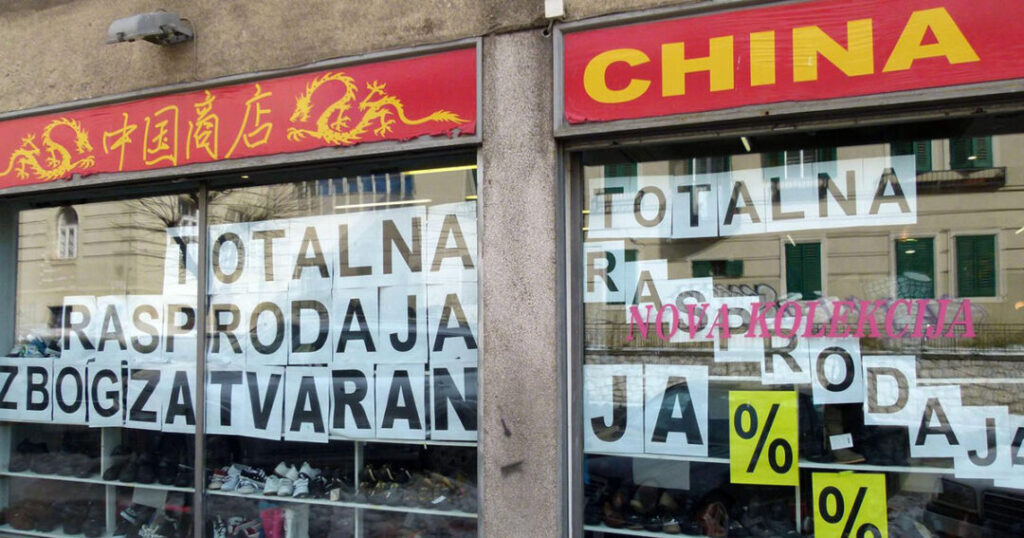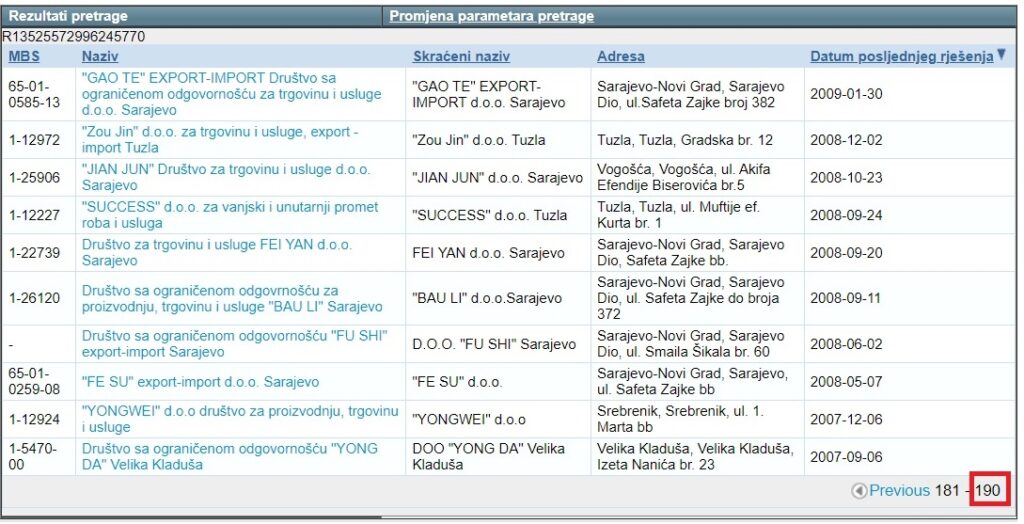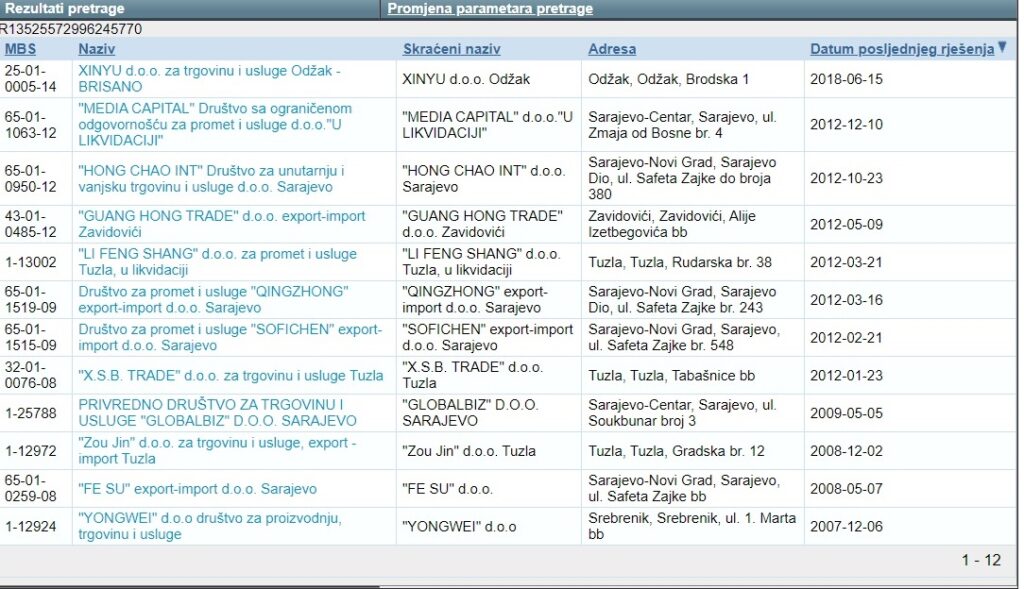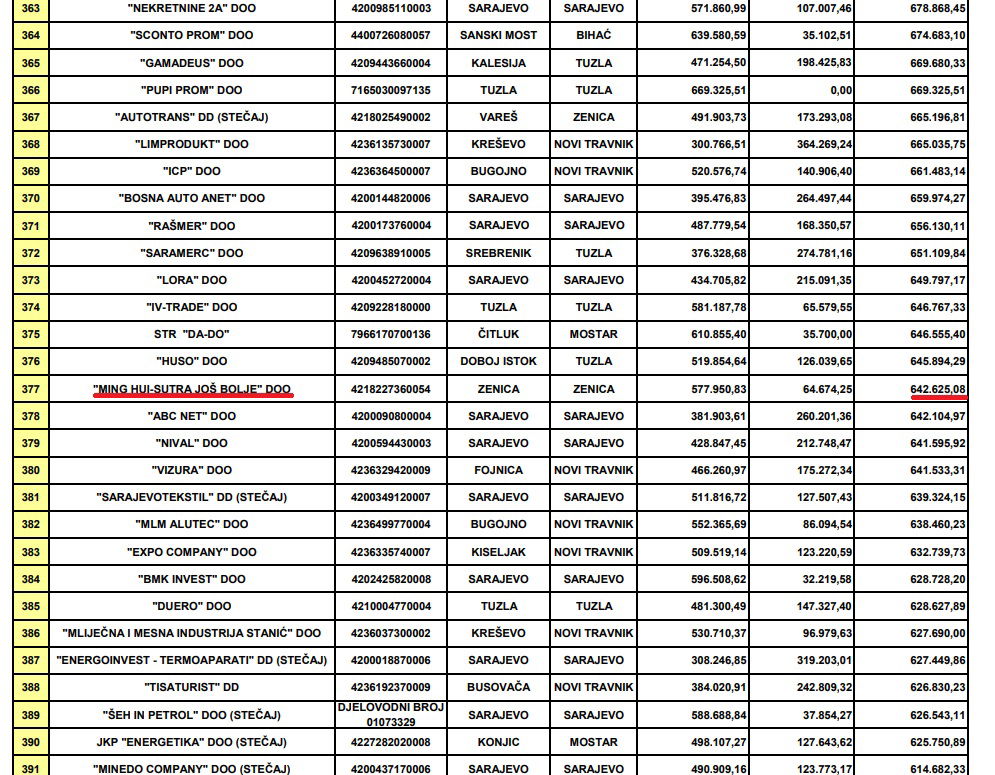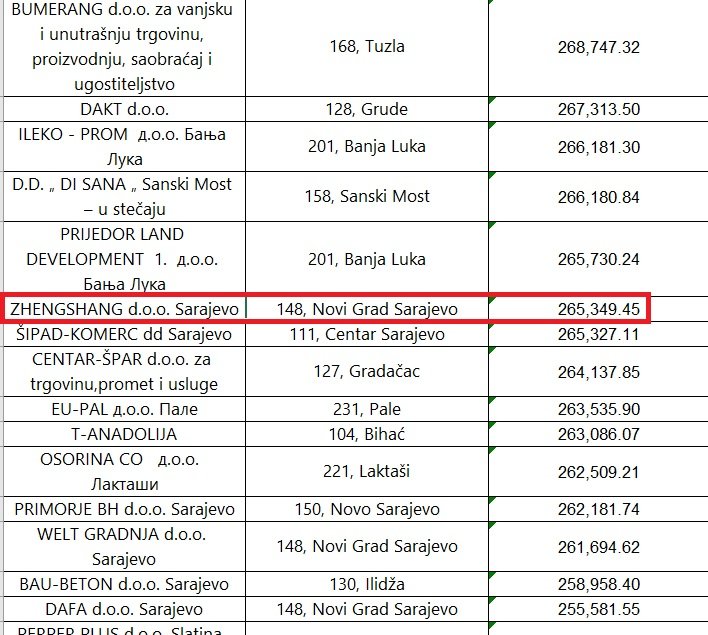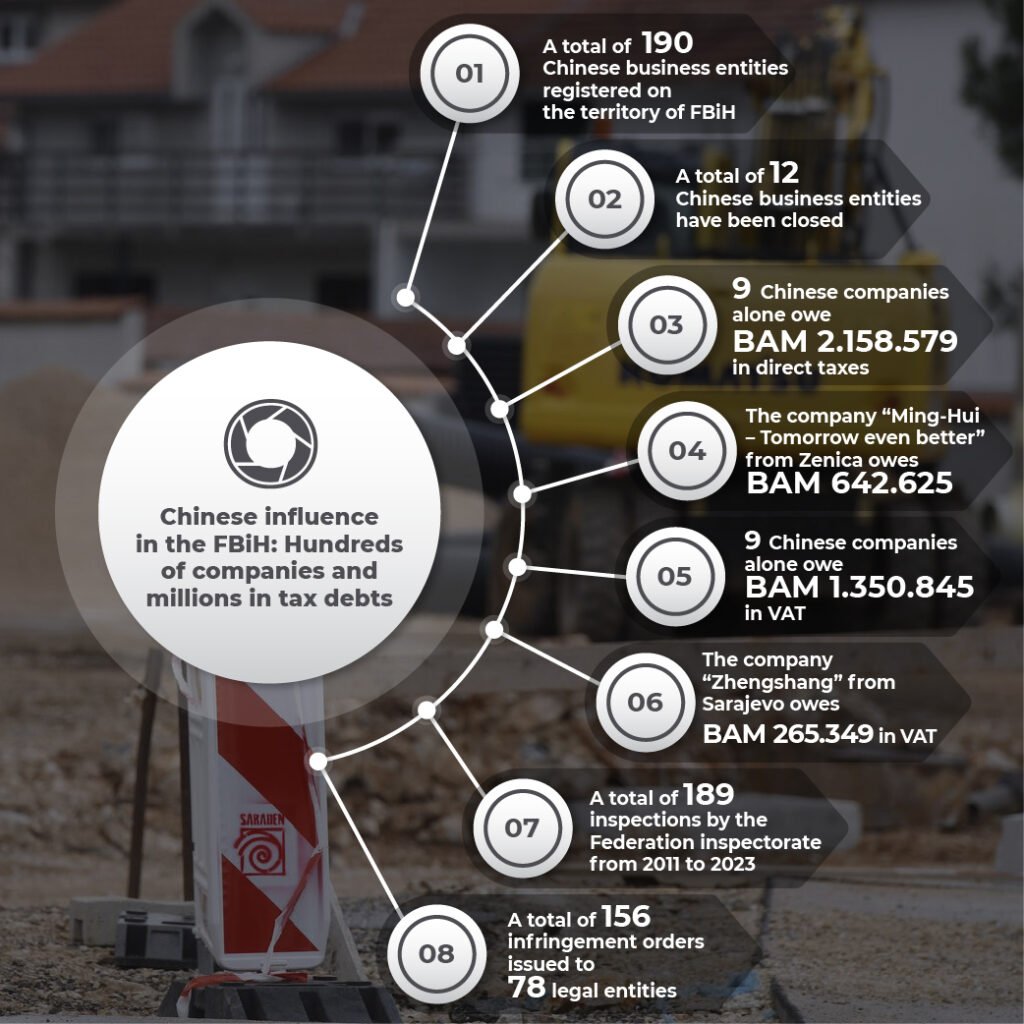SARAJEVO – “Blue bird”, “Beautiful eyes”, “Rambo” – are just some of the colorful names of Chinese companies on the FBiH soil. How many fines did the Federation inspection impose? Some Chinese companies owe more than half a million in direct taxes.
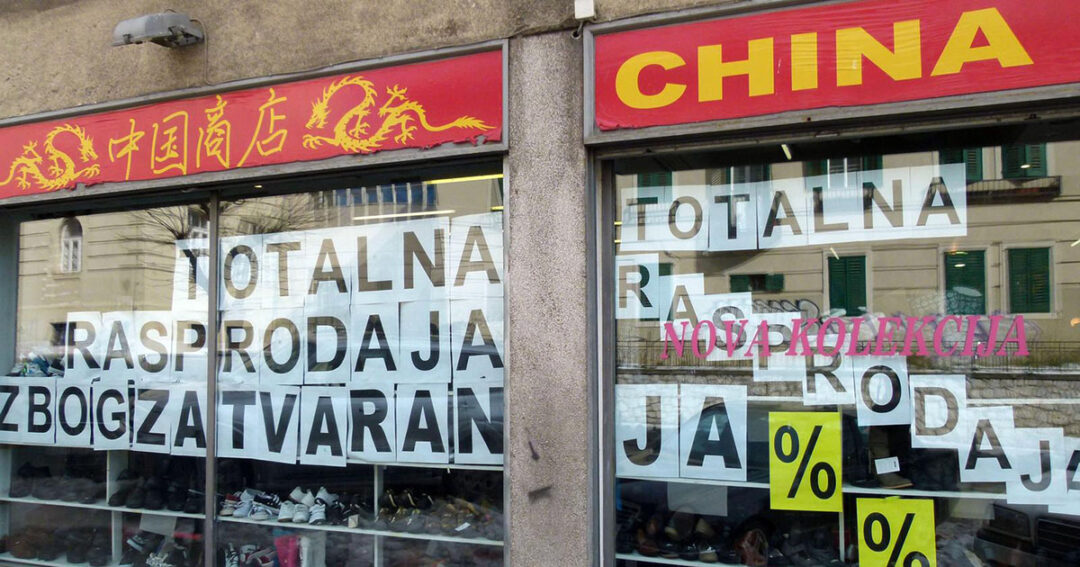
The fact that China declared the market of Bosnia and Herzegovina as a sphere of interest a long time ago is not only indicated by the data on the number of their state-owned companies that are working on large road and energy projects in our country, but also by the information on how many business entities they have managed to register in BiH during all of these years.
Fokus.ba investigated how many Chinese companies, shops and other business entities are registered on the territory of the Federation of Bosnia and Herzegovina alone; then what kind of business they do; if they pay taxes regularly; how many have been liquidated in the meantime, and how the institutions are generally treating them.
Data from the Register
According to the information provided by the Court Register of Business Entities in FBiH, as many as 190 Chinese business entities have been registered since 2007. For the record, this information is as of January 22nd, given that the database is occasionally updated, and they are either deleted or added. On the other hand, only 12 business entities, whose founders are Chinese citizens, were deleted from the Register of Business Entities in the specified period.
Many of the business entities registered on the territory of the Federation of BiH, founded by Chinese citizens, have colorful names written in the Bosnian language, such as “Blue Bird”, “Beautiful Eyes”, “Red Sun”, “Blue Dot”, “Pearl of the Sea”, “Chinese dragon” or “Chinese wall”. The largest number, on the other hand, have Chinese words in their names, while we have also found the names of entities that, despite all the good will, cannot be associated with China, such as “Ankica”, “Dušan” or “Rambo”.
The vast majority of Chinese business entities on this list are registered as trade and service companies. Some are registered in the area of production, and some are also registered in the area of goods transportation.
According to the FBiH Law on Companies, domestic and foreign natural persons and legal entities can establish a company. The regulations that apply to the legal entities whose founders are nationals are fully applied to the operations of legal entities in the Federation of BiH, whose founder is a foreign legal entity or a natural person.
Information from the Federation Administration for Inspection Affairs (FUZIP)
Furthermore, the latest amendments to the FBiH Law on the Registration of Business Entities from 2017 enable unhindered registration of foreign business entities, as well as their branch offices. Although we are talking about a large number of Chinese business entities, the systems of Federation institutions that deal with the control of these entities and the collection of public revenues do not, unlike the Register of Business Entities, classify them in any way as legal entities with foreign capital.
It was thus difficult to obtain data on the control of these entities in the Tax Administration (TA) of FBiH as well as in the Federation Administration for Inspection Affairs (FUZIP) based on this criterion. While we did not get requested information about their business operations from the Tax Administration for the aforementioned reason, FUZIP made a lot of effort and we received certain information after a few weeks.
When it comes to the Chinese business entities the FUZIP said for Fokus that various Federation inspections had inspected 59 entities in the period from 2011 to 2023. These inspections were multidisciplinary, multiple, inter-agency and individual and were performed in line with the existing national and Federation regulations.
They added that at least 189 inspections were performed in the above-mentioned 59 subjects to inspection in the period from March 21, 2011 (first inspection) to December 13, 2023 (last inspection). The inspections were performed in line with the inspectorate's risk assessments and the need for intensive monitoring of regulation enforcement, especially in the field of trade and consumer protection, when the mentioned subjects are concerned.
– At least 189 inspection reports were drawn up and at least 156 infringement orders were issued, whereof 78 for a legal entity and 78 for a responsible person in the legal entity, as well as seven decisions on imposing an administrative measure against a legal entity and four decisions on elimination of deficiencies. Inspection of business operations of four subjects to inspection was completed with an orderly outcome, i.e. with a conclusion on the completion of the inspection – said FUZIP.
As they stated, the majority of inspections was performed in the areas of trade, consumer protection and fiscalization (about 80%) by the Federation Market Inspectorate, while the remaining portion of business operations inspections relates to other types of inspections by the competent Federation inspectorates (about 20%). There were some isolated cases when decisions on the donation of temporarily confiscated goods and on the procedure and method of product destruction, were made during the inspection – said FUZIP. However, they noted that the data is incomplete due to the lengthiness of software data processing, and the fact that registry materials are destroyed after five years. They also point out that there were a number of legislative changes i.e. narrowing of jurisdiction in that period, and that the cantonal inspection bodies also have the data.
The biggest debtors
The Administration for Inspection Affairs of Canton Sarajevo said that they do not have a record of subjects in Canton Sarajevo containing data disaggregated by nationality of the founder/owner, nor are they obliged to have one.
On the other hand, a number of Chinese business entities can be found on the list of tax debtors, which was last updated by the FBiH Tax Administration on September 30, 2023. The tax debt is amounting to millions of BAM.
According to the available data, the largest debt owed to the Tax Administration was made by the company “Ming Hui – Better tomorrow” from Zenica, amounting to BAM 642.625. Large debts were made by the companies “San Jia” from Kiseljak (BAM 322.403) and “Xin Sheng” from Sarajevo (BAM 303.945). The company “Lon Ten” from Sarajevo made BAM 238.684 in tax debt. The company “Bu Bu Xin” from Gračanica owes the Tax Administration BAM 191.736, “Chang Fu Int. Co.” from Sarajevo BAM 153.296, “Dafa” d.o.o. Sarajevo BAM 150.650, “Humako” from Velika Kladuša BAM 85.052, and “Tešanjka” from Sarajevo BAM 70.188.
Also, a number of Chinese companies that are registered on the territory of FBiH are VAT debtors, which is confirmed by the list of debtors of the Indirect Taxation Authority of BiH.
The Chinese companies “Xing Wang” Sarajevo (BAM 47.708), “Kun Feng Mining” Sarajevo (BAM 53.203), and “Dafa” Sarajevo (BAM 255.581) also have debts to the Indirect Taxation Authority of BiH.
Chinese economic influence
In a statement to Fokus Admir Čavalić, member of the FBiH Parliament and economic expert, said that there was a fairly widespread network of Chinese trade establishments on the territory of BiH in 2000s.
– They closed over time. This also happened in other countries of the Balkans and the Eastern Europe due to the fact that China achieved exceptional rates of economic growth then and that China’s standard of living at that moment exceeded that of Bosnia and Herzegovina, as it was the case in some countries of the Eastern Europe. These workers no longer needed to go abroad in order to earn a certain income or ensure their own existence – said Čavalić.
He added that the Chinese production had then turned to higher quality goods thus losing that price competitiveness.
– China’s economic influence is quite specific because it is characterized by geopolitical influence and the two overlap, which is why it is difficult to see the line. China has a number of geopolitical interests that it ties to the economic sphere. This is also happening in Bosnia and Herzegovina. Unlike the 2000s, when trade was in focus, the shift was now made mostly to large infrastructure projects, such as energy and road projects, etc. It is happening not only in BiH but also in the region– said our interlocutor. Fokus.ba

